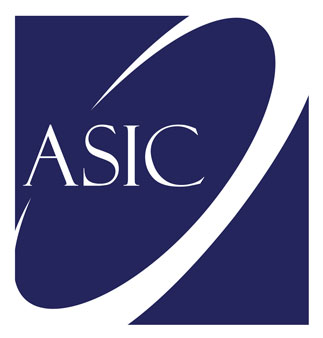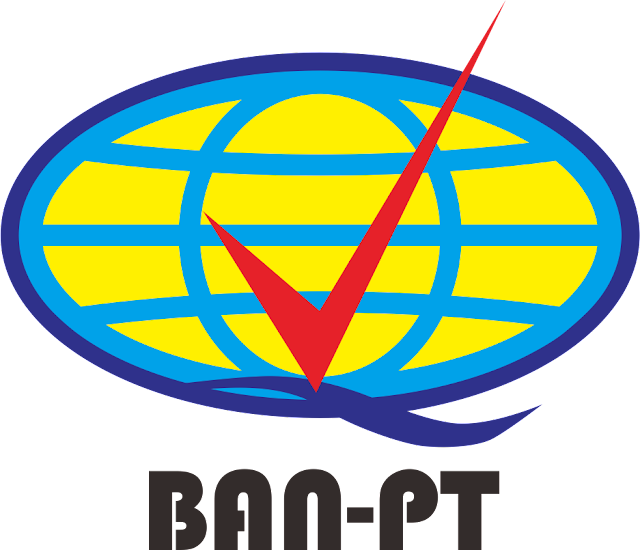You are here
PBSI Curriculum
CURRICULUM
INDONESIAN LANGUAGE AND LITERATURE EDUCATION STUDY PROGRAM
- Introduction
Universities are not sterile from the demands and development of the times. The ability to respond to the challenges and tendencies of the times is the standard for a university to remain competitive. Challenges and tendencies force and require universities to apply corporate logic by prioritizing the principles of financing efficiency, risk calculation, and predictive ability. For this reason, it is necessary to mobilize all potential university resources to conduct evaluations.
Evaluation and change are part of the validation and expansion of useful science. One aspect that is important to evaluate and change is the curriculum. This is based on the assumption that the curriculum is one of the main strategic components in the education system. This assumption provides the basis that the curriculum not only contains goals to be achieved, but also provides an understanding of the learning experience for students.
In the context of nation and state, the curriculum is a strategic learning tool to nurture and shape individual conceptions and behaviors about identity awareness. Identity awareness refers to the ability and process of understanding changes in identity related to the way of thinking, independence, and personal orientation (internal-psychological aspects) as well as individual positions, roles, and social responsibilities (external-sociological aspects). Therefore, the process of transforming value systems, meanings and symbols of material and nonmaterial in the field of human life includes also economic, religious, power, agriculture, marine, financial, health, clothing, food, architecture, housekeeping, law, property rights, and independence of thought or subjectivity.
This conception is in line with the Preamble of the 1945 Constitution, namely educating the nation's life, protecting the entire nation and Indonesian bloodshed, promoting general welfare, and participating in implementing world order based on lasting peace and social justice. In other words, the relevance of the curriculum to identity awareness is reflected through a deep meaning that intelligent education is education with a curriculum that leads to the development of Indonesia into an advanced, modern, moral, disciplined, highly work ethic, mastering technical and professional abilities, having a rational attitude and intellectual ability, democratic, responsible, and prosperous and prosperous.
In the context of learning, the curriculum is a set of plans that contain objectives, content, and learning materials as well as ways used as guidelines for implementing learning activities to achieve certain educational goals. In accordance with the context of nation and state, the curriculum in this context must be part of seeding and forming individual conceptions and behaviors about national and state identity awareness. Thus, the curriculum is not only a decoration during meetings in classrooms between lecturers and students, but the most important part in changing the characteristics of Indonesian people who are advanced, modern, moral, disciplined, have a high work ethic, master technical and professional abilities, have a rational attitude and intellectual abilities, democratic, responsible, and prosperous and prosperous.
Based on this view, curriculum evaluation and change is a must. Likewise, the curriculum in the PBSI Department of FBS UNY, both the PBSI and BSI Study Program Curriculum. Therefore, it is necessary to evaluate and change the curriculum that is currently in effect. The basis for curriculum evaluation and changes is the Regulation of the Minister of Education and Culture of the Republic of Indonesia Number 3 of 2020 concerning National Standards
Higher Education and Regulation of the Rector of Yogyakarta State University Number 5 of 2020 concerning the Independent Learning Curriculum-Independent Campus for Undergraduate and Applied Bachelor Programs of Yogyakarta State University. In both regulations, students are given the opportunity to study outside their study program and outside the university in order to strengthen compatibility. The curriculum is called the Medeka Belajar Kampus Merdeka Curriculum. The main characteristic of the curriculum is that students are given space and facilities to strengthen competence by providing opportunities to take learning outside the study program at the same university and / or take learning in the same study program at different universities, learning in different study programs at different universities; and/or out-of-College learning. With the independent learning curriculum model, the curriculum must be reorganized and must provide a number of credits that can be taken by students either outside the study program inside the PT itself or outside the study program outside the PT itself, including providing a number of courses for students to take from outside the study program on campus and outside the study program outside the campus.
Based on the evaluation of the on-going curriculum, the following notes were obtained. First, the courses contained in the current curriculum have provided provisions for students to become qualified and independent teachers which is reflected in three groups of courses, namely learning or education, language, and literature. Second, the curriculum has provided space for students to master additional competencies as a provision to compete in the world of work in the form of elective courses. Third, the weight of course credits has reflected the depth and breadth of the field of knowledge that will be controlled by students. Fourth, the curriculum has provided opportunities for students to choose additional competencies that suit their interests. All of that is a strength for PBSI study programs. In addition to strengths, there are some weaknesses found in the curriculum. First, different courses are still obtained, but the learning outcomes are relatively the same or have been contained in other courses. Second, the profile of graduates has not been explicit with various competencies obtained through various mastery of courses in the curriculum. The results of the evaluation are used as the basis for the revision of the PBSI Curriculum which has the characteristics of the Independent Learning Curriculum of the Independent Campus which must continue to be evaluated and revised on an ongoing basis by considering the needs in the field and aspects of its up-to-date. Therefore, every year this activity must be carried out again to
its evaluation and revision.
- Vision-Mission and Objectives of Study Program
The vision of the Indonesian Language and Literature Education Study Program FBS UNY is that in 2025 it will become an educational study program at the ASEAN level in the field of Indonesian Language and Literature Education. The mission of the Indonesian Language and Literature Education Study Program is described as follows.
-
- Develop and solidify graduates who are able to compete at the international level.
- Develop and strengthen systemically and synergistically the institutional capabilities of study programs effectively and efficiently as study programs that have an educational identity.
- Organizing education and teaching that is synergistic with research and community service programs in the field of Indonesian Language and Literature Education.
- Conducting synergistic research with education and community service programs in the field of Indonesian Language and Literature Education.
- Producing community service activity programs to participate in empowering the community in the field of Indonesian Language and Literature Education.
- Establish cooperation with various domestic and foreign institutions to implement the tri dharma of higher education.
The objectives of the Indonesian Language and Literature Education Study Program FBS UNY are as follows.
- Improve the institutional capabilities of the Indonesian Language and Literature Education Study Program in order to achieve effectiveness and efficiency as a study program that has an educational identity;
- Producing human resources who have academic expertise in the field of Indonesian Language and Literature Education with an emphasis on the spirit of regional autonomy and national interests in the global era;
- Produce research that supports the development of education and teaching, science, technology, and art in the field of Indonesian Language and Literature Education.
- Produce community service activity programs to participate in empowering the community in the field of Indonesian Language and Literature Education; and
- Produce cooperation with various domestic and foreign institutions.
The target of the Indonesian Language and Literature Education Study Program FBS UNY is to produce scholars with the following criteria:
- length of study period less than 4 years with an average grade point average of 3.35;
- have a relevant profession with competence as an educator of at least 90%; and
- maintain the management of SPMI and SNPT standard study programs.
- Graduate Profile
Based on KKNI and SNPT in 2020, the preparation of the current curriculum refers to the emergence of graduate profiles. The profile of graduates of the PBSI Bachelor Study Program (S1) is a scholar who is an expert in Indonesian language and literature as well as Indonesian language and literature education that is transformed to others, both orally and in writing; Both affective, psycho-motor, and knowledge so as to create a high-literacy society. Through this transformation, there will be the formation of a very essential foundation, namely language and literature competence in students as needed at the next level of education or profession. The professions and fields of work or expertise that can be filled by graduates of the S1 Indonesian Language and Literature Education Study Program are as follows.
Table 1. Graduate Profile
|
Not. |
Graduate Profile |
|
1 |
Prospective teachers Indonesian SMP/MTs and SMA/MA/SMK who master learning information technology. |
|
2 |
Candidates for current research in the field of Indonesian language and literature education. |
|
3 |
Prospective teachers Indonesian for foreign religions. |
|
4 |
Aspiring author of various learning and journalistic scripts. |
- Learning Outcomes
The learning outcomes of the S1 Indonesian Language and Literature Education study program consist of attitudes, knowledge, special skills, and general skills presented in Tables 2 and 3.
Table 2 Learning Outcomes
Indonesian Language and Literature Education Study Program
|
Not. |
Parameters |
Learning Outcomes |
|
1. |
Attitude |
|
|
2. |
Knowledge Mastery |
|
|
3. |
Special Skills |
Indonesian |
|
Not. |
Parameters |
Learning Outcomes |
|
||
|
4. |
General Skills |
|
Table 3. Competency Elements
Indonesian Language and Literature Education Study Program
|
Graduate Profile |
Study Program Learning Outcomes |
||
|
Key Competencies |
Additional/Supporting Competencies |
Other Competencies |
|
|
General Knowledge |
|||
|
Teacher |
Teaching. |
||
|
Journalist |
j. Mastering the basics of cheese. |
||
|
BIPA Lecturer |
k. Mastering the basics of Indonesian learning for foreigners (BIPA) |
||
|
Book Author |
l. Mastering the basics of writing learning books. |
||
|
Special Skills |
|||
|
Teacher |
sea fruit. Able to apply linguistic theories in linguistic analysis |
||
|
Graduate Profile |
Study Program Learning Outcomes |
||
|
Key Competencies |
Additional/Supporting Competencies |
Other Competencies |
|
|
|||
|
Journalist |
Able to apply journalistic theory and Lam Field of Journalism |
||
|
BIPA Lecturer |
Able to apply the basic theory of BIPA in learning Indonesian for non-native speakers |
||
|
Book Author |
Able to apply book writing theory in the development of textbooks and Nontext lessons |
||
|
General Skills |
|||
|
Teacher, Journalist, Teacher |
|
||
|
Graduate Profile |
Study Program Learning Outcomes |
||
|
Key Competencies |
Additional/Supporting Competencies |
Other Competencies |
|
|
BIPA, and Book Author |
implementation of science and / or technology that pays attention to and applies humanities values in accordance with their field of expertise
|
||
- Study Material
In accordance with the profile of graduates of the Indionesian Language and Literature Education Study Program, to develop the main competencies as junior and senior high school teachers of Indonesian language and literature, there are several study materials needed which include the fields of literature, linguistics, the field of basic theory of language skills, and the field of learning theory and learning Indonesian Language and Literature. Literature study materials include the basics of literature, literary theories, literary development, studies of various literary phenomena, especially Indonesian literature in an academic context. The field of study of linguistics includes the basics of linguistics, linguistic theories, language development, the study of various language phenomena, especially Indonesian in an academic context. The basic theoretical field of language skills includes the basics of Indonesian language skills and their application in context. The field of study of learning theory and learning of Indonesian language and literature includes learning theory and learning in general, classroom management or learning, learning strategies and evaluation in context to develop the field of study of Indonesian language and literature.
In addition, to develop additional competencies as book writers, journalists, language editors, and BIPA (Indonesian for Foreign Speakers) teachers, study materials are needed which include basic theory and practice of book writing, basic theory and practice of journalism, basic theory and practice of language editing, basic theory and practice of learning BIPA.
Information Systems
Contact us
 Telp: 0274-550843 / 546719
Telp: 0274-550843 / 546719Copyright © 2026,





 Email :
Email :  +6285743444921 (Ibu Bernadetta)
+6285743444921 (Ibu Bernadetta)